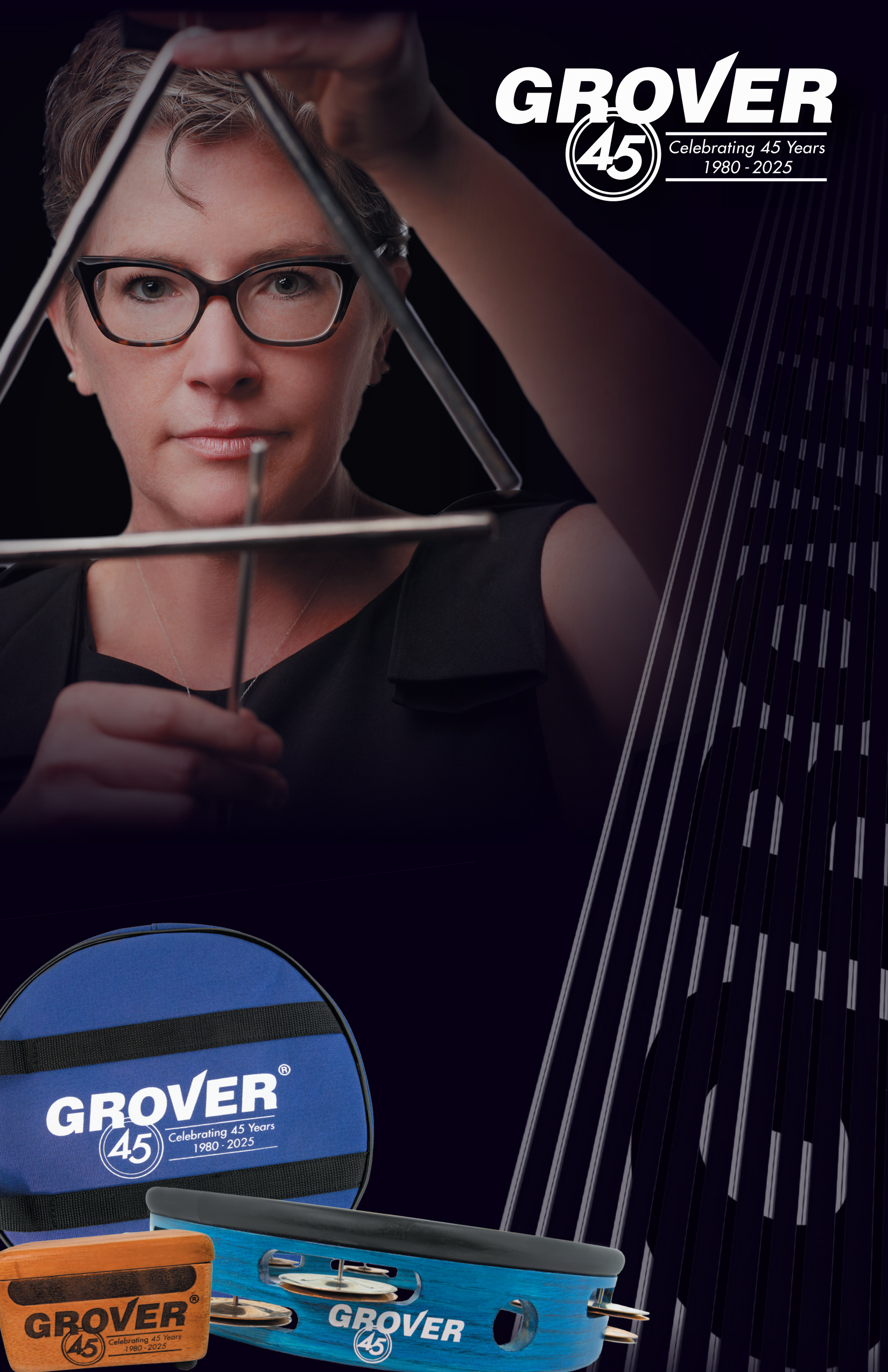 I recently had a discussion with the percussion studio at Southeastern University regarding goals. I am asking the students to set some goals for themselves and for the studio as a way to better understand their purpose and direction during their time at SEU — where they’re heading and why. Drifting aimlessly rarely provides any satisfaction in life, and one could argue it is a poor example of stewardship — not using well the gifts and opportunities that God has given us.
I recently had a discussion with the percussion studio at Southeastern University regarding goals. I am asking the students to set some goals for themselves and for the studio as a way to better understand their purpose and direction during their time at SEU — where they’re heading and why. Drifting aimlessly rarely provides any satisfaction in life, and one could argue it is a poor example of stewardship — not using well the gifts and opportunities that God has given us.
I also want to make sure that the students are taking ownership of what goes on in the percussion studio. It is not my percussion studio or music department; it’s theirs, and it will be what they choose to make it. As a way to ensure we are being intentional about our actions this semester and this school year, I am having my students think through and write down short-term, mid-term, and long-term goals, both individually and as a percussion studio. We will share some of our goals with each other, and I am encouraging them to keep their written goals visible as a constant reminder of what they are working toward.
Keep in mind that those who simply write down their goals are much more likely to accomplish those goals than those who have goals in their minds but do not write them down. Also, sharing your goals with a community who cares about you dramatically raises your chances of meeting them.
To provide a little guidance, I shared the following with them, and I offer it to you in case it is useful in setting your own goals as a percussionist or other type of musician.
SETTING SMART GOALS
S – Specific (detailed and not vague)
M – Measurable (must be able to tell if you accomplished it not)
A – Attainable (stretch and challenge you but are realistic)
R – Relevant (help motivate you and move you forward in the area you want to develop)
T – Time-bound (provide a deadline for when the goal will be accomplished)
Part 1: Individual goals which relate to your growth as a musician and percussionist.
Long-term (5 years) — Write down 2-3 long-term goals which you plan to accomplish in about 5 years
Mid-term (6-12 months) — Write down 2-3 mid-term goals which you plan to accomplish in the next 6-12 months.
Short-term (1-2 months) — Write down 2-3 short-term goals which you plan to accomplish in the next month or two.
Part 2: SEU Percussion goals which provide direction for where we are heading as a studio/community.
Long-term (5 years) — Write down 1-2 long-term goals which you hope our studio can accomplish in about 5 years, recognizing you will not be here at that time. Where do you think we should be in 5 years?
Mid-term (6-12 months) — Write down 1-2 mid-term goals which you can help our studio accomplish in the next 6-12 months.
Short-term (1-2 months) — Write down 1-2 short-term goals which you can help our studio accomplish in the next month or two.
THOUGHTS TO CONSIDER
- individual technical skills (could include a plethora of skills relating to hands/technique) music/sight reading abilities
- specific pieces of music, etudes, or method books
- scales, rudiments, fundamentals
- various percussion instruments or categories of instruments (drumset, keyboard percussion, snare drum, orchestral percussion instruments, hand drums, etc.)
- styles of music
- joining PAS (Percussive Arts Society)
- going to PASIC (Percussive Arts Society International Convention)
- attending certain types of concerts/performances/events in order to grow as a musician
- knowledge of established musicians, drummers, etc.
- percussion ensemble repertoire (types of things we want to be able to play/accomplish musically) being prepared for ensemble rehearsals
- types of performance, venues, events we want to play at, individually or as an ensemble
- ensembles, bands, etc. to get involved with
- instruments, sticks/mallets, other gear (black towels!) to purchase
- practical skills and knowledge to learn/develop, such as music and percussion terms, recording skills, computer music skills, drum tuning, maintenance, etc.
- community development, relational skills among students
- building your professional connections
- web presence and marketing skills as a musician
- financial literacy and habits
- developing specific practice habits/skills
- improvisation
- stage presence and performance skills
- reading more about percussion-related topics
- not missing any lessons, not having excuses for lessons
- recording yourself more often
- number of practice hours per day/week
- playing a certain number of times for studio class and/or Departmental Recital
- composition skills
- theory and aural theory skills
- piano skills
- integrating faith and art
- and many more!
ACTION PLAN
After writing your goals, you should start considering some small action steps that will help you reach your goals. Action steps are singular actions that move you one step closer to your goal. A short-term goal might take a couple actions steps to accomplish, while a longer-term goal will take many action steps. What is your action plan for reaching your goals?
 Percussionist, composer, and educator Brian Blume has performed as a soloist, chamber musician, orchestral player, and studio percussionist, with groups such as the Carmel Symphony Orchestra, Terre Haute Symphony Orchestra, Columbus Indiana Philharmonic, and BluHill Percussion Duo. He recently won a position as section percussionist with the Imperial Symphony Orchestra in Lakeland, Florida. Brian performed at Super Bowl XLVI in Indianapolis with Madonna, Cee Lo Green, and Kelly Clarkson, and he was in the 2012 Indianapolis Colts drumline.
Percussionist, composer, and educator Brian Blume has performed as a soloist, chamber musician, orchestral player, and studio percussionist, with groups such as the Carmel Symphony Orchestra, Terre Haute Symphony Orchestra, Columbus Indiana Philharmonic, and BluHill Percussion Duo. He recently won a position as section percussionist with the Imperial Symphony Orchestra in Lakeland, Florida. Brian performed at Super Bowl XLVI in Indianapolis with Madonna, Cee Lo Green, and Kelly Clarkson, and he was in the 2012 Indianapolis Colts drumline.
Brian currently serves as Assistant Professor of Percussion at Southeastern University, where he teaches applied percussion, percussion techniques, music theory, world music, and the school’s first ever drumline, the Fireline. Prior to his appointment at SEU, Brian taught percussion at Center Grove High School (Greenwood, IN), who boasts one of the nation’s premiere high school percussion programs. Brian has also taught several drum corps and the Indiana University Drumline. He is a sought after adjudicator and clinician and has presented at several universities, high schools, and state PAS Day of Percussion events, and PASIC. As a composer, Brian has received numerous commissions and has works published by Tapspace Publications, PercMaster Publications, and drop6 media. His work for TV broadcast has been aired nationwide on ESPN, CBS, Big Ten Network, and MTV.
Brian earned both Master and Bachelor of Music degrees in percussion performance from Indiana University’s Jacobs School of Music. He is a member of the Percussive Arts Society (member, Composition Committee), ASCAP, and NAfME. Brian lives in Lakeland with his wife and daughter.

Leave a Reply